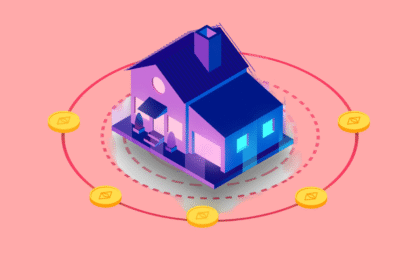
Deciding whether to rent or buy a home has always been a complex and deeply personal decision, but in 2025, it’s more nuanced than ever. With fluctuating interest rates, rising property prices, and economic uncertainties shaping the housing market, many Americans find themselves at a crossroads. The decision isn’t just about where you’ll live—it’s about your financial future and long-term stability.
Renting offers flexibility and lower upfront costs, making it an attractive option for those wary of committing to a property or dealing with maintenance responsibilities. On the other hand, buying a home represents a long-term investment with potential financial rewards, including equity building and tax benefits. With these competing advantages, how do you determine what makes more financial sense right now?
This article dives deep into the rent-versus-buy debate, offering valuable insights for potential homeowners and renters alike. We’ll explore the current housing market, weigh the pros and cons of each choice, and provide practical strategies to help you make an informed decision. Whether you’re starting your journey in real estate or considering your next move, this guide is here to help you navigate the complexities of today’s housing market.
Article Highlights:
- Market Analysis for 2025: In 2025, the housing market is shaped by high mortgage rates and rising rent prices, making the rent vs. buy decision more complex than ever.
- Renting Benefits: Renting offers flexibility, lower upfront costs, and maintenance-free living, ideal for those uncertain about long-term plans or location stability.
- Buying Advantages: Purchasing a home builds equity, provides tax benefits, and offers stability, making it a great option for those planning to stay long-term.
- Key Financial Considerations: Budget, future goals, market trends, and lifestyle preferences should be carefully assessed to determine whether renting or buying aligns with your financial future.
Understanding the Current Housing Market in 2025
The housing market in 2025 is shaped by several unique factors. Mortgage interest rates, while not as volatile as in recent years, remain higher than the historical lows of the early 2020s. Average rates now hover around 6-7%, making homeownership more expensive for first-time buyers. Coupled with rising property values in metropolitan areas, many Americans are reconsidering whether purchasing a home is financially viable.
Conversely, the rental market isn’t a haven of affordability. National rent prices have climbed steadily, especially in urban hubs like New York, Los Angeles, and Austin. However, some smaller cities and suburban areas have seen stabilization, offering renters potential relief. This dual dynamic creates a challenging environment for those weighing their options.
Economic uncertainty also plays a significant role. Job market fluctuations, inflation concerns, and potential recessions influence both renting and buying decisions. While owning a home provides stability in a turbulent market, renting offers the flexibility to adapt to changing circumstances. Understanding these trends is critical when evaluating what makes sense financially in 2025.
The Pros and Cons of Renting in 2025
Advantages of Renting:
- Flexibility and Mobility: Renting allows you to relocate easily, making it ideal for those unsure about long-term commitments or expecting career changes.
- Lower Upfront Costs: Security deposits and initial rents are significantly less than the down payment required for purchasing a home.
- Maintenance-Free Living: Landlords typically handle repairs and maintenance, saving renters both money and hassle.
- Access to Amenities: Many rental properties offer amenities like gyms, pools, and community spaces without additional costs.
Disadvantages of Renting:
- No Equity Building: Rent payments don’t contribute to ownership, meaning you’re not building wealth over time.
- Lack of Stability: Rent increases and the potential for eviction can disrupt long-term financial planning.
- Limited Customization: Rental agreements often restrict renovations or personalization of your living space.
Renting is often the better choice for those seeking short-term convenience or unsure about their future plans. However, the financial drawbacks of renting, particularly the inability to build equity, make it less appealing for those with long-term stability in mind.
The Benefits and Challenges of Buying a Home in 2025
Advantages of Buying:
- Equity and Investment: Monthly mortgage payments build equity, turning your home into a financial asset over time.
- Tax Benefits: Homeowners can deduct mortgage interest and property taxes, reducing their annual tax burden.
- Stability and Control: Owning a home provides long-term stability and the freedom to renovate, expand, or personalize your space.
- Potential Appreciation: Real estate often appreciates in value, offering the potential for a significant return on investment.
Challenges of Buying:
- High Upfront Costs: Down payments, closing costs, and moving expenses can make homeownership financially daunting.
- Market Volatility: Property values can fluctuate, potentially leaving homeowners underwater if the market dips.
- Maintenance Costs: Homeownership comes with ongoing expenses, including repairs, property taxes, and insurance.
- Commitment: Buying a home ties you to a specific location, which may not align with future personal or professional goals.
For those planning to stay in one place for several years and who have the financial means, buying a home in 2025 can be a rewarding investment. However, it’s essential to account for the risks and responsibilities associated with homeownership.
Financial Factors to Consider
When choosing between renting and buying, it’s crucial to evaluate the financial implications based on your unique circumstances. Key considerations include:
- Budget: Assess your current financial health, including savings, debt, and monthly cash flow. Can you afford the upfront costs of buying, or is renting more feasible?
- Future Plans: Consider your long-term goals. If you anticipate staying in one location for at least five years, buying may offer better financial returns.
- Market Conditions: Research local housing and rental markets. Are home prices in your area appreciating, or are rents stabilizing?
- Lifestyle Preferences: Renting offers flexibility, while buying provides control. Choose what aligns with your lifestyle priorities.
- Opportunity Costs: Factor in what you might gain or lose by allocating funds to rent versus investing in property.
Using tools like rent-vs-buy calculators and consulting financial advisors can provide clarity and ensure your decision aligns with your goals.
The Hidden Benefits of Renting or Buying
For Renters: Renting offers intangible benefits, such as reduced stress from maintenance issues and the ability to live in prime locations without long-term commitments. Renters also avoid the financial risks tied to market downturns.
For Buyers: Beyond equity and appreciation, homeownership fosters a sense of community and personal achievement. Owning a home can enhance your credit profile and create generational wealth.
Conclusion: Making the Right Choice in 2025
As you weigh the decision to rent or buy in 2025, remember that there’s no one-size-fits-all answer. Your choice should reflect your financial situation, future goals, and personal preferences. Renting may make more financial sense if you prioritize flexibility and lower upfront costs. Conversely, buying a home is a worthwhile investment for those seeking stability, equity growth, and long-term financial security.
The housing market is ever-changing, but informed decisions can lead to financial success. By carefully analyzing your options and leveraging the resources available, you can confidently navigate the rent-versus-buy debate. Whether you’re renting or buying, the most important step is to align your choice with your goals, ensuring a brighter and more secure future.
In 2025, the American dream of homeownership remains alive but requires a thoughtful, pragmatic approach. Make the decision that not only meets your current needs but also sets you up for lasting success.





